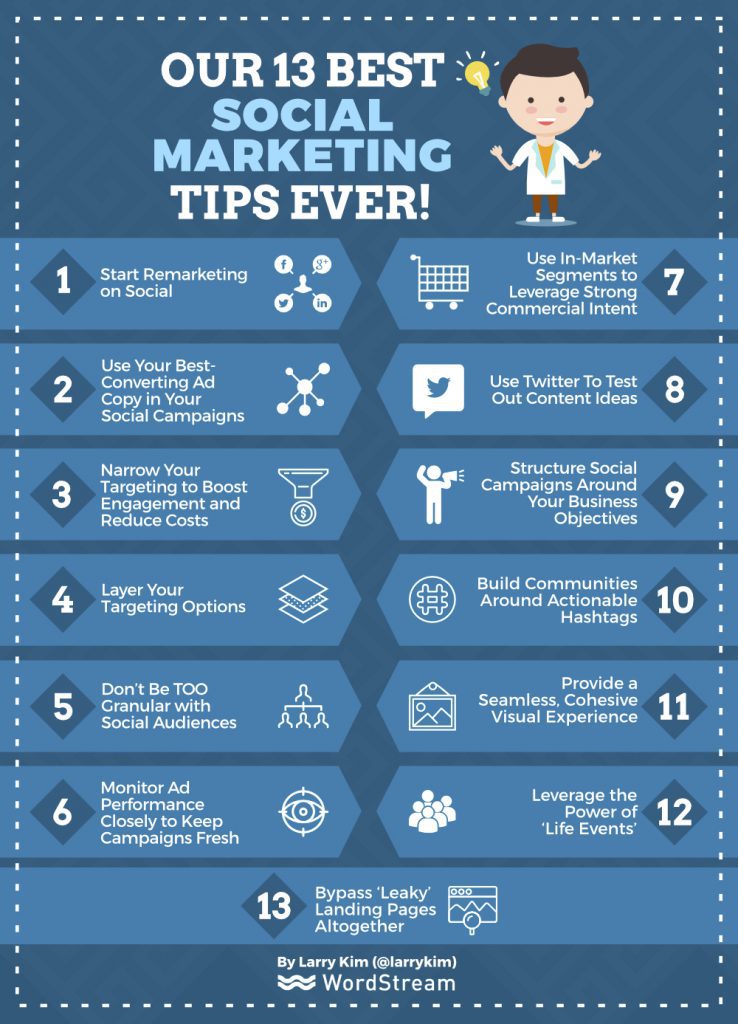
A content calendar is a vital part of a social strategy. It allows you to plan and create your posts. Social media platforms demand more specific data so it is crucial to plan your posts. Your social media calendar should contain basic information such geo-targeting, value, and other relevant information. You can also use CoSchedule or Unbounce to manage your content calendar. You should include important information, such as the target audience, in your content calendar.
Create a content calendar
Content calendars can help you organize your content strategy and plan it. They can be as easy as a spreadsheet or as complex and detailed as Asana. You can easily add comments, excerpts and files to each section of content. You will be able to create more content by using a content planner. These tips will help you to create a content plan that works for you.
- Make a buyer persona. This allows you to determine the types of content buyers are looking for. You can also track the frequency of content publishing. For each type of content that you create, make a calendar. This will allow you to know when and how often different content types should be posted. You can then tailor your content calendar to meet the needs of your audience once you have this information. Not only can you create a content schedule for your content but also for other channels like email and social networks.
Create a social media content schedule
You can allocate your resources more efficiently by creating a social media content schedule. As long as the calendar contains all finalized posts, it can be as complex as you wish. This can simplify your day and make it easier to brainstorm. You can import the calendar to Google Calendar. Once you have created your social media content calendar you can add any new elements to it.

Make sure you add metadata to each post when creating a social media content schedule. This metadata could include hashtags and channels as well as time of day and targeted audience. It can help you with your social media marketing efforts by adding relevant @-mentions. This allows you to easily see your plans. Once you have a calendar, you can start planning and creating content. You might also consider creating a weekly editorial schedule if you work with a team.
CoSchedule helps you manage your content calendar
A content calendar is vital for all businesses, large or small. A content calendar will help you organize tasks and meet deadlines. It will also allow you to avoid confusion. By creating a calendar, your team can stay on the right track. It is also possible to assign tasks to team members to let them know what they must do.
A content marketer will likely have to manage multiple projects and tasks. Although you may have many ideas, it is likely that you don't have the time or resources to accomplish each one. CoSchedule provides a solution. This all-in-one marketing platform helps you plan, manage, and schedule content across your team. CoSchedule can be used to help you and your team create a content plan.
Unbounce lets you manage a content schedule
Managing a content calendar with Unb bounce is an excellent way to organize your blog posts and optimize the distribution of your SEO content. This tool also allows you to add tags and comments for better organization. It is also useful for tracking your progress and incorporating SEO guidelines. A content calendar is an evolving document that should be easily updated as necessary. Below are some tips to help you create a content calendar that works best for your business.

Content calendars are vital to your content strategy. They track when and where you will post your content. They provide data-driven insights that will help you determine the success of your content. A content calendar can be useful if you have a complex content strategy. A content calendar can be used to track your marketing efforts, such as if content is to be released on a daily or weekly basis.
FAQ
What is the difference of content marketing and content production?
Content marketing is a way to ensure that every brand has the same message. They deliver valuable information that people desire and need.
Content marketers are skilled at creating the right content for every channel and time.
They know how to plan and execute a marketing strategy that will be effective in promoting their products.
Also, they are strategic about what they do and why they do it.
This is the core skill set needed to be a successful content marketer.
What length should my content marketing last?
It depends on your goals. Businesses may be looking for immediate results, while others want long-term growth. We recommend that you start with three months of consistent content production and then evaluate your progress after that period.
Do I have to post links to content on other sites?
Yes! It's called link building. Linking to content from another website is a great method to increase your site's traffic. Links to credible sources should only be included.
Do content marketing agencies provide the best services?
Many content marketing agencies have years of experience in creating content strategies and delivering them to their clients.
You can save a lot of time by having a plan tailored to your needs.
Don't assume every agency can provide the skills that you require. Some agencies specialize in niches like eCommerce. Others are specialists in particular industries, such law firms.
Ask them about their specialties and you'll find the right agency for you.
What can I do to improve my content marketing strategy
Content marketing strategies can be improved by focusing more on the audience, content and distribution. To begin, you must understand your ideal client and where they spend their time online. Once you know this information, you can tailor your content to appeal to them. The second step is to create a voice and style that differentiates you from the rest. Third, you will need to know how to properly distribute your content.
How much does content marketing cost?
The cost of content marketing depends on whether it's an outsourced solution or something you do all yourself. Outsourcing content marketing services is usually less expensive than hiring full-time staff, and allows you to scale up quickly when you require more coverage.
HubSpot research indicates that the average cost of outsourcing content production for B2B firms is $5 per lead, while it costs $22 per consumer brand lead.
However, there are many resources online that provide content marketing tools for free that can be used to create engaging content and convert.
There are many ways to create optimized content for search engines like Google and Bing. You can create original content, guest post on blogs or curate content from other sites.
You'll need to learn the skills necessary to create great content for self-produced content. Producing content will become relatively simple once you've mastered it.
To start, create simple landing pages in WordPress. Next, build your site. This way, you can build a portfolio over time.
Do I really need to hire an agency to do content marketing?
No! There are plenty of tools available online that make it easy to create high-quality content. Agencies tend to charge higher prices for their services.
Statistics
- According to research compiled by Coschedule: Companies that publish 16+ blog posts a month get as much as 3.5x as much traffic as those that publish 0-4 posts a month. (criteo.com)
- In fact, would pay more for a better customer experience, and 86% of B2B buyers would pay more. (neilpatel.com)
- Forty-seven percent of buyers view 3 to 5 pieces of content before engaging with a sales representative. (mailchimp.com)
- Content marketing produces 3X more leads per dollar spent. Content marketing costs 62% less than traditional marketing. (criteo.com)
- According to our research, brand awareness, attracting traffic, and generating leads remain the key content marketing goals in 2022. (semrush.com)
- We found that 40% of businesses don't have a documented strategy yet. (semrush.com)
- Seventy-two percent business to business (B2B) (mailchimp.com)
- Progress indicators (0–100%) allow each team member to see how attainable each goal is and understand what remains to be accomplished. (semrush.com)
External Links
How To
How can you build a content strategy?
Understanding what content you want to create is the first step. Once you have established this, it is time for content creation. This could mean creating an editorial calendar and planning the source of these content. Every piece of content should have a purpose. It doesn't matter what type of content it is, blog posts, social updates, or any other, they all must serve a single purpose.
Once you've decided on the type of content that you want to create, it's important to determine who your target audience is. Who are they looking for? And why should they care?
Next, you need to identify your target market. Then, find ways to communicate with them. Social media platforms are an excellent way to connect with people, but other options exist, such as videos, podcasts, webinars, etc.
Next, you need to decide how you will communicate your message with your market. Then you need to determine what topics you'd like to cover. This is how you will determine the reason for writing the content. What problem does it solve Is it useful? Is it going to make their lives easier?
Now that we know what type of content we write, it is time to determine what you want. Are you looking to share information in your industry? On current events? Which products and services are you most interested in? Your focus will be determined by the answer to this question.
Once you have answered all of these questions, it is time to put everything together into one package.
You want to make sure every piece of content serves its purpose. You don't want anyone to waste their time and energy so make sure you build quality into all aspects of your content.
Don't forget that a great content marketing strategy has many moving parts.